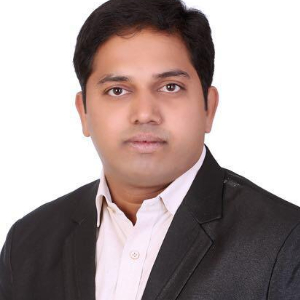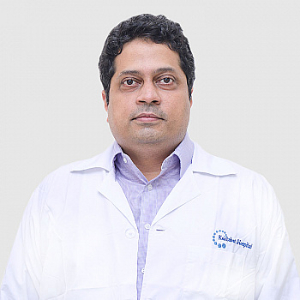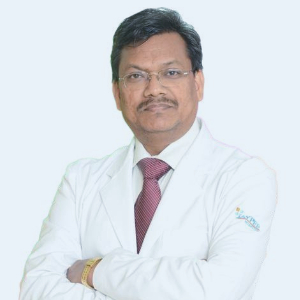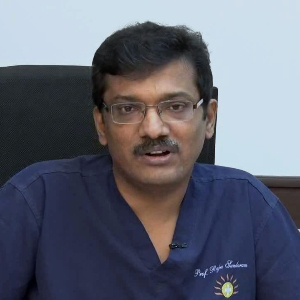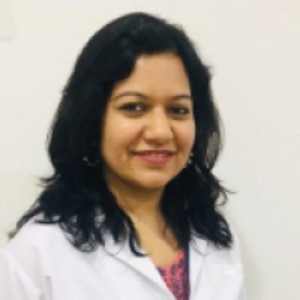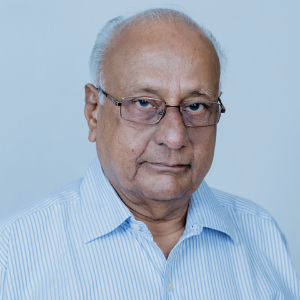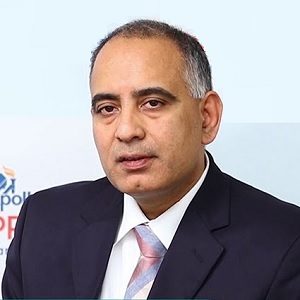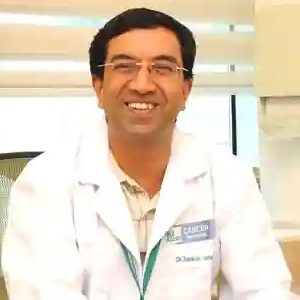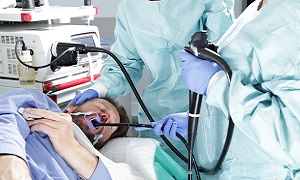Best Esophagus Cancer Treatment Doctors in India
- Surgical Oncologist, Hyderabad, India
- Over 10 years’ experience
Profile Highlights:
- Dr. Girish Kumar is a Surgical Oncologist whose expertise lies in the surgical treatment of both adult and pediatric cancer and provides services for head and neck, breast, GI, bone and soft tissue, urological, colorectal, and gynecological cancers.
- Along with the surgical treatment of various types of cancers, Dr. Girish Kumar also provides pre and post-operative cancer care.
- He has also trained a number of medical students in surgical oncology and continues to mentor postgraduate students.
- Surgical Oncologist (Breast & Colorectal), Mumbai, India
- Over 20 years’ experience
Profile Highlights:
- Dr. Mandar Nadkarni is a well-known name in the field of Breast onco-surgery in India and has performed more than 8000 breast surgeries for cancer patients in 20+ years of experience.
- Dr. Nadkarni has also performed over 500 oncoplastic procedures that include therapeutic mammoplasty as well as whole breast reconstruction. He also holds the credit for more than 100 hook wire localization for impalpable lesion procedures.
- Surgical Oncologist, New Delhi, India
- Over 20 years’ experience
Profile Highlights:
- Dr. Pawan Gupta is a well-known Surgical Oncologist in India having more than 2 decades and has performed over 7000 onco-surgeries for head and neck, thoracic, breast, GI, and gynecological cancers.
- Dr. Pawan Gupta is highly trained in different types of cancer surgeries and received his training from the best Cancer centers including Tata Memorial Hospital and SMH Curie Cancer Center.
- Surgical Oncologist, Chennai, India
- Over 25 years’ experience
Profile Highlights:
- Dr. Rajasundaram is a highly successful and experienced Surgical Oncologist with great expertise in performing laparoscopic cancer surgeries.
- He has over 25 years of experience in Surgical Oncology and has performed more than 15,000 cancer-related surgeries till date.
- His expertise lies in the treatment of various types of cancers including organ cancers, solid cancers, blood cancers, inherited cancers, and benign tumors.
- Medical Oncologist, Gurugram, India
- Over 20 years’ experience
Profile Highlights:
- Dr. Randeep Singh has trained extensively in managing cancer patients at the prestigious Tata Memorial Hospital, Mumbai.
- After spending over 20 years in this field, he has a vast experience in breast, lung, and gastrointestinal cancers.
- Throughout his career, Dr. Randeep Singh has had over 40 publications in national and international journals.
- He has also attended and presented various scientific papers in national and international journals.
- Surgical Oncologist, Gurugram, India
- Over 10 years’ experience
Profile Highlights:
- Dr. Shilpi Sharma is a highly experienced surgeon and oncologist who has previously worked in prestigious institutions such as Tata Memorial Hospital, and National Cancer Institute.
- Throughout her career, she has conducted various high-quality research in the field of head and neck cancers. Dr. Shilpi Sharma has also been part of various randomized and nonrandomized trials and has also been involved in clinical and translational research.
- She is also a member of ICMR guideline committee which formulated the ICMR guidelines on tongue cancers.
- Medical Oncologist, Chennai, India
- Over 40 years’ experience
Profile Highlights:
- Dr. Bellarmine Vincent Lawrence is a well-known Medical Oncologist in South India with a specialization in the treatment of breast cancers.
- He provides overall both pre and post-operative treatment of breast cancer that includes diagnostic, therapeutic as well as palliative care.
- He also provides services for other types of cancers including blood cancer and does procedures like Chemotherapy for the treatment and biopsies for the detection of cancer.
- Medical Oncologist and BMT Specialist, Chennai, India
- Over 25 years’ experience
Profile Highlights:
- Dr. T. Raja is a Medical Oncologist from the Tamil Nadu state with 25 years of know-how in this field.
- He has proficiency in Cancer Screening, Chemotherapy, PICC Line Insertion, Bone Marrow Transplantation, Stem Cell Transplantation, Pap collection, lymphoma, Renal Cell Cancer management, and Head and Neck Tumor.
- Dr. Raja was the Principal Investigator for several clinical studies, a published author for journals, and a teacher.
- Medical Oncologist, Chennai, India
- Over 28 years’ experience
Profile Highlights:
- Dr. Sankar Srinivasan is one of the top Medical Oncologists in India with proficiency in cancer management for about 28 years.
- He got certified in Internal Medicine, Medical Oncology, and Hematology from American Board to enhance his skills.
- Dr. Srinivasan is placed in the best 10% of the Hematologists boards.
- He is an active member of several International Medical Association Boards.
Best Esophageal Cancer Treatment Hospitals in India
CK Birla Hospital, Gurugram
- City: Gurugram, India
Hospital Highlights:
- The CK Birla Hospital in Gurugram is a NABH-accredited multi-specialty hospital.
- The hospital strives to increase the quality of healthcare by focusing on UK NHS nurse and midwife training requirements. Policies and practices derived from the National Institute for Health and Treatment Excellence (NICE) recommendations in the United Kingdom ensuring that a strong focus on safety, high-quality clinical care, and sanitation is maintained.
- The hospital’s cutting-edge technology and facilities allow for real-time communication and seamless collaboration among caregivers, ensuring accuracy and the best possible results. Those with foreign experience and accreditations make up part of the hospital’s team of clinicians.
KIMS Hospital, Hyderabad
- City: Hyderabad, India
Hospital Highlights:
- KIMS Hospital (a brand name of Krishna Institute of Medical Sciences) is one of the largest and best multi-speciality hospitals in Hyderabad. The hospital provides various treatments to an enormous number of patients.
- The hospital has a capacity of more than 3000 beds. KIMS Hospitals offers different healthcare services in more than 25 specialities and super specialities.
- The hospital is equipped with modern medical equipment and technology. It has robotic equipment to provide minimal invasive techniques for patients.
- The hospital is aimed at providing world-class healthcare facilities and services at an affordable cost for patients.
- The various specialities and departments of the hospital include neurosciences, gastroenterology & hepatology, robotic science, reproductive sciences, dental science, oncological sciences, organ transplantation, heart and lung transplantation and mother and child care.
Fortis Hospital, Shalimar Bagh
- City: New Delhi, India
Hospital Highlights:
- Fortis Hospital in Shalimar Bagh is a multi-super specialty hospital that strives to provide world-class patient care by leaving no stone unturned.
- Fortis, Shalimar Bagh, with 262 beds and a 7.34-acre footprint, provides the best level of medical care through its team of doctors, nurses, technicians, and management professionals.
Reliance Hospital, Mumbai
- City: Mumbai, India
Hospital Highlights:
- Reliance Hospital is one of the best super-specialty care hospitals in Navi Mumbai.
- The main purpose of this hospital is to become a trustworthy place for the best health and hope for society. The hospital is well connected to the suburbs of Mumbai and Navi Mumbai.
- The hospital has various specialty departments, viz., Accident & Emergency, Anesthesiology, Dental Services, Dermatology, Diabetology, Dietetics Nutrition, Endocrinology, ENT, Gastroenterology, General Surgery, Gynaecology And Obstetrics, Hepato Pancreato Biliary Surgery, Infectious Disease, Internal Medicine, Interventional Radiology, Laboratory Medicine, Minimal Access Laparoscopic Surgery, Nephrology, Neurosciences, Opthalmology, Orthopaedics, Paediatrics, Pain Management Palliative Care, Physical Medicine Rehabilitation, Plastic And Reconstructive Surgery, Psychiatry, Pulmonary Medicine, Radiology, Rheumatology, Transplant, Urology Andrology, Vascular Surgery
Lilavati Hospital & Research Centre, Mumbai
- City: Mumbai, India
Hospital Highlights:
- Lilavati Hospital & Research Centre is India’s premier multi-speciality tertiary care hospital and has been recognised as a global medical excellence centre.
- Lilavati Hospital & Research Centre has built an unrivalled level of trust with its patients over the years, thanks to a solid foundation that comprises cutting-edge facilities, the best medical competence, research, education, and charity endeavours.
- The hospital is quite proud of the fact that it now serves patients from all kinds of backgrounds, not just from the United States but from all around the world.
- The hospital has a total of 323 beds, one of the largest Intensive Care Units (ICUs), 12 Operation Theatres with modern amenities, over 300 consultants, and almost 1,800 personnel.
Esophagus Cancer
Esophagus Cancer is the cancer that occurs in the Esophagus – the long, hollow tube that runs from our throat to the stomach. The esophagus carries the food items from the throat to the stomach for digestion.
Generally, esophagus cancer (also called esophageal cancer) occurs in the cells that line the inside of the esophagus. Esophageal cancer can occur anywhere along the esophagus. It is seen that males are more prone to esophagus cancer than females.
Causes of Esophagus Cancer
The exact cause of esophagus cancer is still not known. The disease happens due to mutations in the DNA of cells which causes the cells to multiply abnormally. The excess cells form a tumor that grows and eventually spreads to other organs (metastates) if not treated.
However, the following are considered to be the risk factors of Esophagus cancer:
- GERD– Gastro-Intestinal Reflux Disease or GERD is a digestive disorder where the acids that help your stomach break down and process the food starts to push up the esophagus. Frequent acid reflux or chronic GERD can result in esophagus damage or cause cancer.
- Poor Lifestyle. Lifestyle choices like poor dietary routine, tobacco and alcohol consumption, choosing fast food over nutritious food, etc can directly or indirectly (chronic indigestion) lead to this condition.
- Barrett’s Esophagus. This is a medical condition that causes precancerous changes in the cell and can be one of the leading causes for esophagus cancer.
Other reasons may include:
- Obesity
- Achalasia (medical condition)
- Drinking very hot beverages frequently/ persistently
- Lack of nutrition
- Previous radiation / chemotherapy
- Other types of chronic digestive disorder
Prevention of Esophagus Cancer
Following are some of the recommended steps for reducing risk of esophagus cancer (as well as, other types of cancers):
- Quit smoking
- Drink alcohol in moderation, if you have to.
- Eat more fruits & green vegetables
- Maintain a healthy wait
- Maintain an active lifestyle.
Types of Esophagus Cancer
There are broadly two types of esophagus cancers:
Squamous Cell Carcinoma– This type of cancer develops in the thin, flat cells that form the inner lining of the esophagus. Even though the most common places are the top and the middle, Squamous cell carcinoma can appear anywhere in the esophagus lining.
Adenocarcinoma- The esophagus contains certain glandular cells that are primarily responsible for fluid production in the esophagus. Cancer developing in these cells is medically termed as adenocarcinoma. This type of cancer most often occurs in the lower end of the esophagus (close to the stomach)
Others- While the above two are the most common type, there are other types such as small cell carcinoma, melanoma, lymphoma and more that can be accounted for.
Symptoms of Esophagus Cancer
In Esophageal cancer, early stages usually come with zero or no symptoms. It is not until the cancer progresses to the advanced stage, do the symptoms start showing.
Common symptoms for Esophagus cancer would include:
- Discomfort, difficulty, and pain in swallowing
- Hoarseness in voice
- Severe coughing (chronic)
- Sudden loss of weight (unintentional)
- Frequent indigestion or acid reflux
- Dry throat (and even mouth)
- Chest pain or burning sensation in chest
- Severe tiredness
- Nausea (may be accompanied by vomiting)
Esophagus Cancer Stages
- Stage 1: Cancer is detected in the inner esophagus lining.
- Stage 2: Cancer has spread to the outer layer of the esophagus
- Stage 3: Cancer may have spread deeper into the inner layers or the surrounding tissues and cells around the esophagus
- Stage 4: Cancer is progressive and is spreading to other parts of the body.
Diagnosis of Esophagus Cancer
If the symptoms mentioned above start showing up, your healthcare professional will recommend one or more than one clinical tests to determine or identify the cancerous cells. Diagnostic tests may include:
Biopsy
Endoscopy
Scans
A MRI, CT or PET scan to determine the exact position of the cancer and whether it is spreading or not.
X-Ray
If you have Esophagus cancer, on diagnosis, the doctor will determine your condition based on the 4 stages of the cancer.
Treatment options for Esophageal Cancer
The treatment method will heavily depend on the cell type, but the most common treatment methods recommended by doctors would be:
Surgery
Surgical intervention too will depend upon the severity of the condition. While some surgeries may aim to remove the cancerous tumor, other forms of surgery may remove parts of the esophagus or upper portion of the stomach, based on the origin and spread of the cancer. Most surgeries are open procedures, but surgical treatment for esophageal cancer may come with certain complications like internal bleeding or infection.
Chemotherapy
Chemo is one of the most popular treatment methods for cancer that aims to eliminate the cancerous cells within the body and can stop active cancer cells from spreading further. Chemo is often used alongside radiation therapy but even though it’s effective, this form of treatment may come with some side effects of its own, for instance, hair loss, nause, tiredness, and pain could be some of the side effects of chemotherapy.
Radiation Therapy
Radiation therapy uses high beams of radiation (X-Rays or Protons) to eliminate the cancer cells from the body. This form of treatment can also relieve symptoms. However, radiation therapy too comes with its own side effects which may include pain, swallowing-difficulty, sunburn-like conditions in skin.
Immunotherapy
Immunotherapy (also called biologic therapy) is a new type of cancer treatment where the body’s immune system is boosted to help the body fight cancer by itself. Immunotherapy uses substances made by the body or in a laboratory to improve or restore immune system function.
What should my long-term expectations be?
Esophagus cancer, in the earlier stages can be cured completely. However, if you’ve already moved to the advanced stage, chances of complete cure can be difficult. However, it can always be treated to keep the symptoms in check. Chances of survival or cure are more if the cancer is not proactively progressive in nature.
FAQs
Are there any alternate treatment methods?
You can try other natural treatment methods like acupuncture, massage, aromatherapy etc at home to keep the symptoms in check but the primary form of treatment would either include chemotherapy, radiation therapy, both or surgery.
What is the survival rate for esophagus cancer?
If the cancer is diagnosed at the right time, the survival rate would be something around 47-50%. However, if the cancer is progressive in nature, the survival rate drops down to around 25%.

